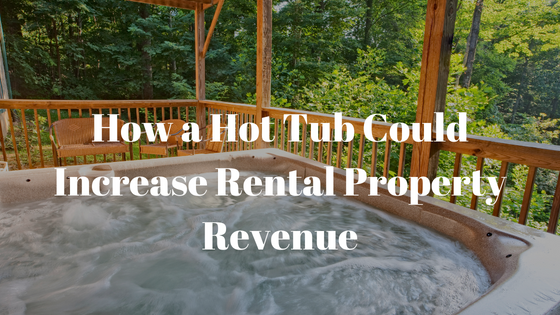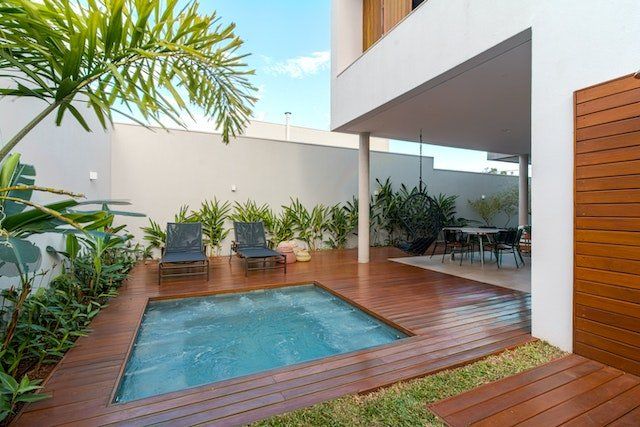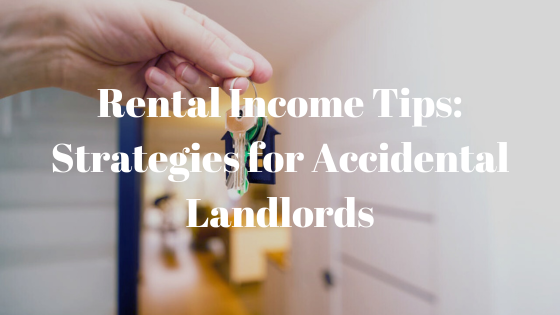How a Hot Tub Could Increase Rental Property Revenue

If you own a rental property, chances are you're always looking for ways to increase your revenue and attract more tenants. After all, more money in your pocket means a higher return on investment and a better chance of success in the long run.
One way to boost your rental income is to install a hot tub on the property. Installing a hot tub can be a great way to differentiate your rental property from others in the area. If you're in a competitive market, anything that makes your property stand out can be an incredible advantage.
The Advantages of Installing a Hot Tub
Installing a hot tub is a relatively easy and cost-effective way to increase your rental property revenue. Some advantages of installing a hot tub on your rental property include;
Tenants Will Pay More
You can justify charging a higher rate if your rental property has a hot tub. Tenants will be willing to pay a premium for the added luxury, recreation, and relaxation a hot tub provides.
Your Property Will Attract More Types of Tenants
Hot tubs will attract those looking for a little more relaxation and recreation. For many, a hot tub turns a backyard into a mini-vacation where they can relax after a long day or spend time with friends and family. By attracting more potential tenants, your property won’t be on the market for long.
Tenants Are More Likely To Stay Long-term
Tenants are more likely to stay at a rental they enjoy. One of the significant deciding factors could be whether or not the rental had a hot tub. If you’re looking to keep tenants longer, having a hot tub is a great way. After all, who wouldn’t want to leave a rental property that has its own private hot tub?
What Are the Costs of Installing a Hot Tub on Your Rental Property?

There are expenses associated with owning and operating a hot tub that you need to be aware of before you decide to install one. Below, we list the costs we consider to be the most important.
Hot Tub Price
Price varies depending on the size, features, and type of hot tub you choose. Expect to pay anywhere from $5,000 to $15,000 for a new hot tub.
If you’re looking for a high-end model with all the bells and whistles, you could be looking at a higher price tag.
Installation Costs
Installation costs can quickly add up if you are not careful. Every hot tub will need to be installed by an electrician. Electrical expenses typically range anywhere from $300 to $600. If you need a concrete patio or if you’re going to build a hot tub into a deck, you will need to get estimates and consider the costs associated with doing so.
Hot Tub Energy Expenses
In addition to the initial purchase price and installation costs, you should also consider ongoing operating expenses. These mainly include the energy costs associated with running the hot tub. Depending on the energy efficiency of the model you choose and how frequently it gets used, a hot tub can increase your energy bill by around $20 to $50 per month.
Hot Tub Maintenance Expenses
One of the most important things you need to consider is the cost of maintaining the hot tub. Maintenance expenses include ongoing costs such as chemicals and filter changes and larger ticket items like repairs and replacement parts.
How To Find the Right Hot Tub for Your Rental Property

If you’re thinking about adding a hot tub to your rental property, there are a few variables you need to keep in mind. Below are a few items that rental property owners should consider when shopping for a hot tub.
Consider the Available Space
First and foremost, you need to find a suitable location on your property for a hot tub and ensure you have enough space. The space available affects your options. Have this data available when contacting your local hot tub dealer.
Consider How Many Seats You Need
Make sure when picking out a hot tub that it can accommodate an appropriate number of people. The number of seats you choose should correlate directly with how many tenants your rental property can accommodate.
Consider the Time Invested in Maintenance
You will need to do regular maintenance and cleaning. Ideally, you want something that requires as little maintenance as possible. So, choose a tub with good filtration that you can easily clean. The larger the hot tub is, the more time and money you will need to spend cleaning and performing water changes. When deciding, also factor in how much time you’re willing to spend on maintenance and if you can do it yourself or will need to outsource the maintenance.
Conclusion
Installing a hot tub on your rental property can have many benefits and may help you attract higher-paying tenants. However, there are also many costs associated with owning a hot tub that you need to consider before deciding to install one. By keeping these things in mind, you have everything you need to make an informed decision about whether or not a hot tub is suitable for your rental property. You know your rental property and market better than anyone and can make the best choice.







